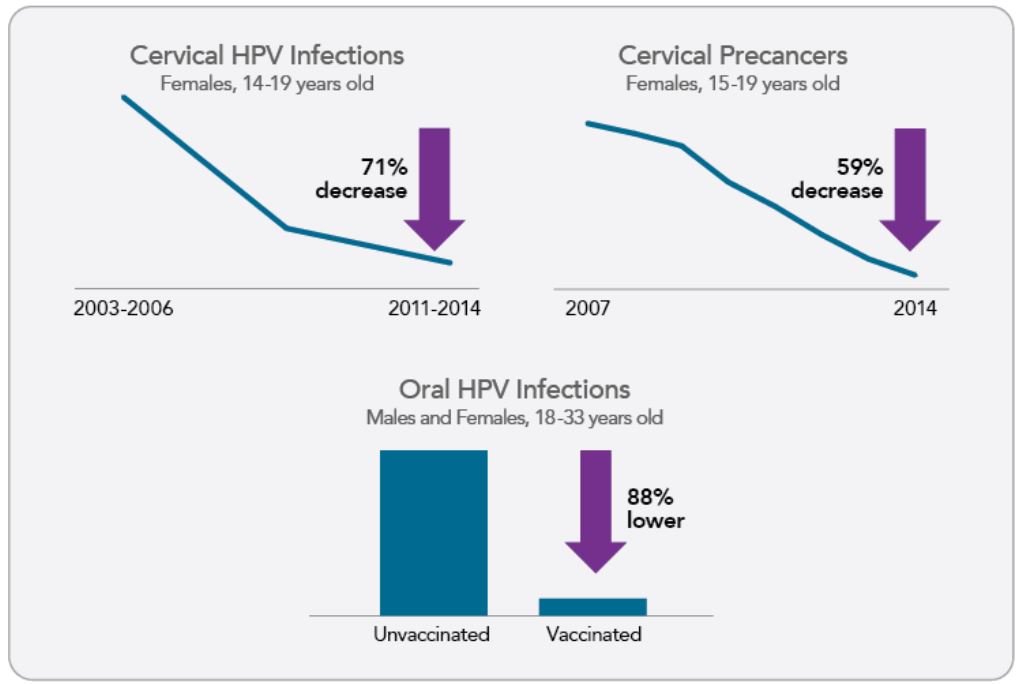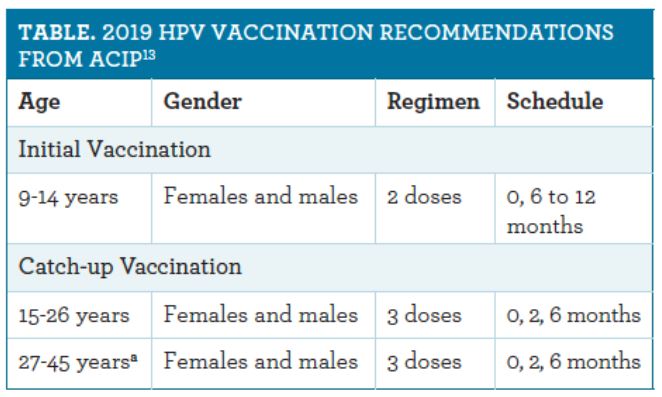Human Papillomavirus (HPV) is the most commonly sexually transmitted infection (STI). There are many different types of HPV. Some types can cause genital warts and other types can cause cancer, including oropharyngeal cancer and cervical cancer.1
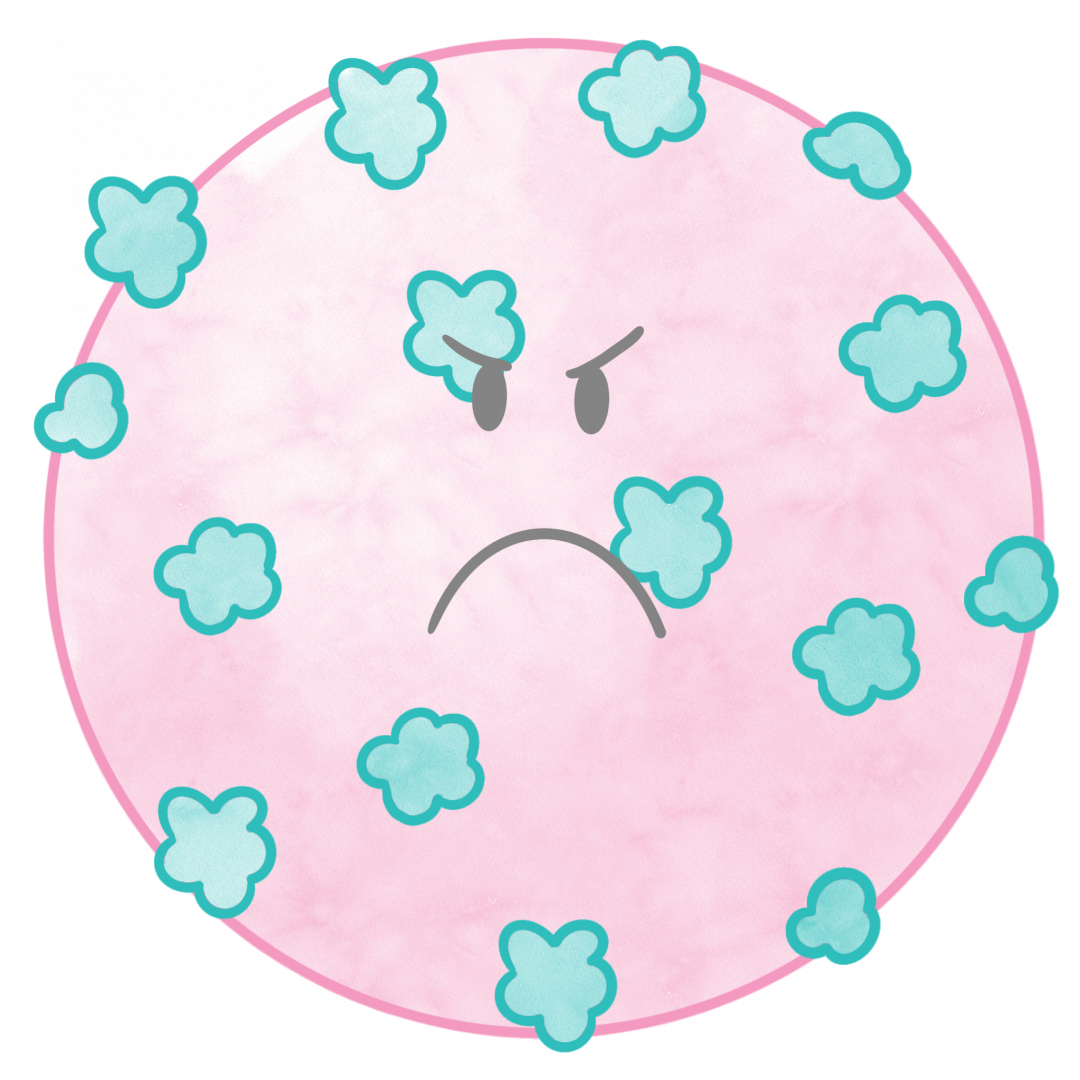
How is HPV Spread?
HPV is spread through sexual contact, including oral and most commonly, vaginal and anal sex. HPV can be spread even when an infected person shows no signs or symptoms.1

Symptoms of HPV Infection
There are more than 100 strains of HPV. Some strains have no symptoms at all. 30-40 of these strains affect the human genital tract, causing genital warts and different types of cancers.2 The most common cancer associated with HPV is cervical cancer, which may take up to 20 years to develop after infection in people with normal immune systems.3

Genital Warts
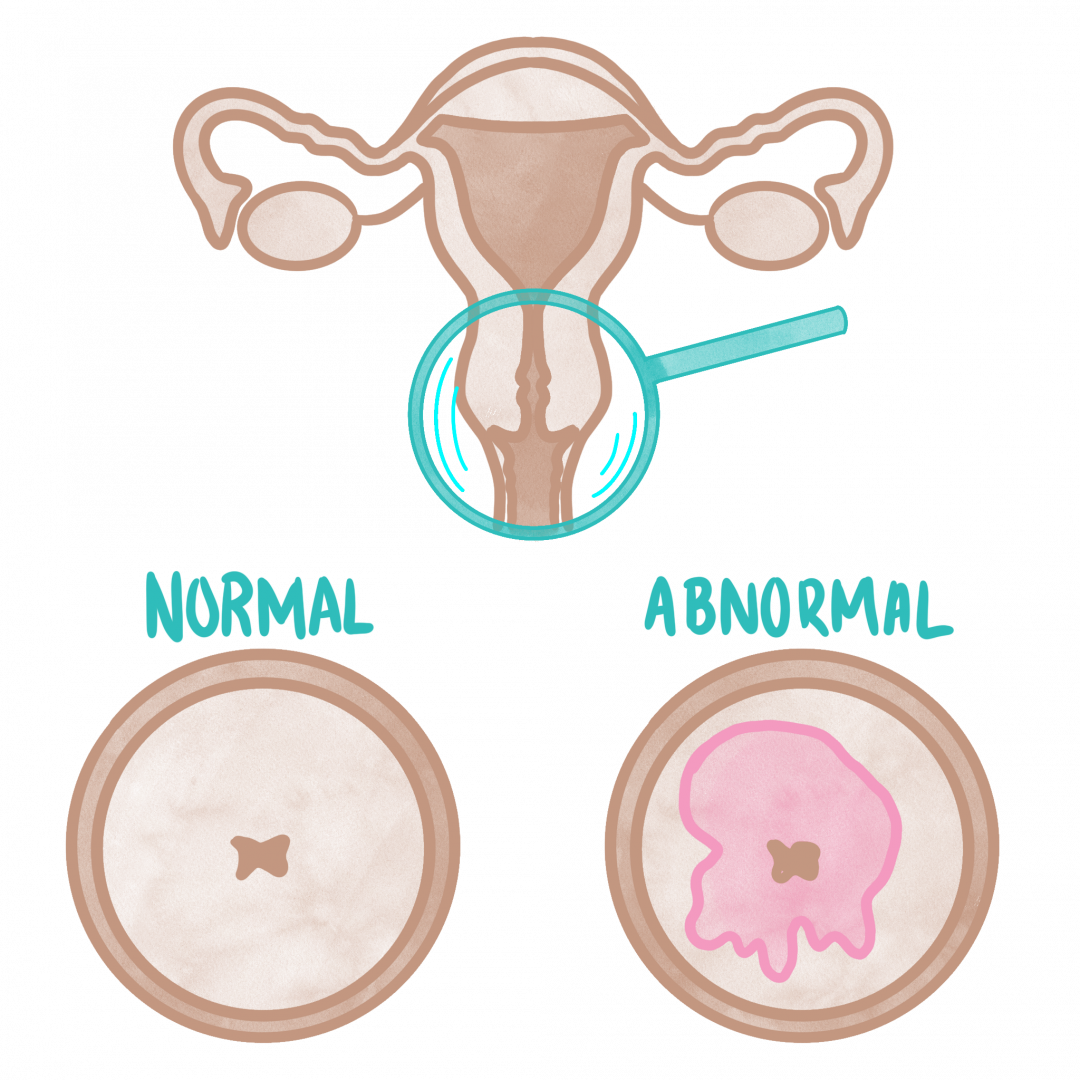
Cervical Cancer
HPV Vaccines

Types of HPV Vaccines
Since 2017, Gardasil-9 has been and currently is the only HPV vaccine that is available in the United States. The first generation of Gardasil covered HPV– 6, 11, 16, and 18. Gardasil-9 covers those four strains, as well as 31, 33, 45, 52, and 58.4
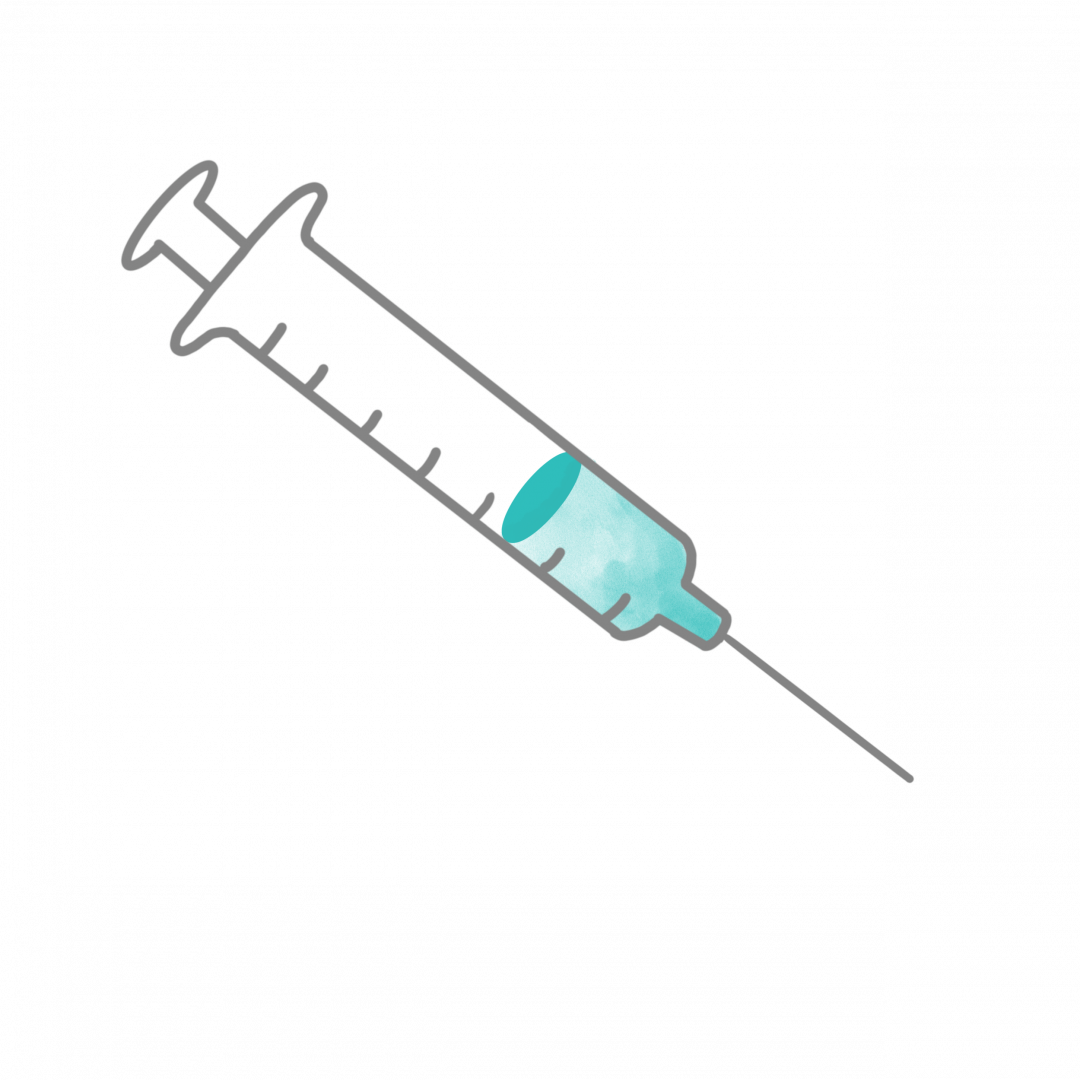
HPV Vaccine Safety
Gardasil 9 has been approved by the U.S. Food and Drug Administration (FDA). Clinical trials were run with over 15,000 people before the vaccine was licensed. The FDA and Centers for Disease Control (CDC) continually monitor the safety of the vaccines. Any safety concerns detected with these vaccines are reported to health officials, healthcare professionals, and the public.5
HPV Vaccine Effectiveness
This graph shows the decrease in central HPV infections, cervical precancers, and oral HPV infections in the United States due to the HPV vaccine.6
HPV Vaccine Schedules7
Vaccine Side Effects5

Fever

Pain, swelling, or redness at the injection site

Dizziness or fainting

Nausea

Muscle or joint pain
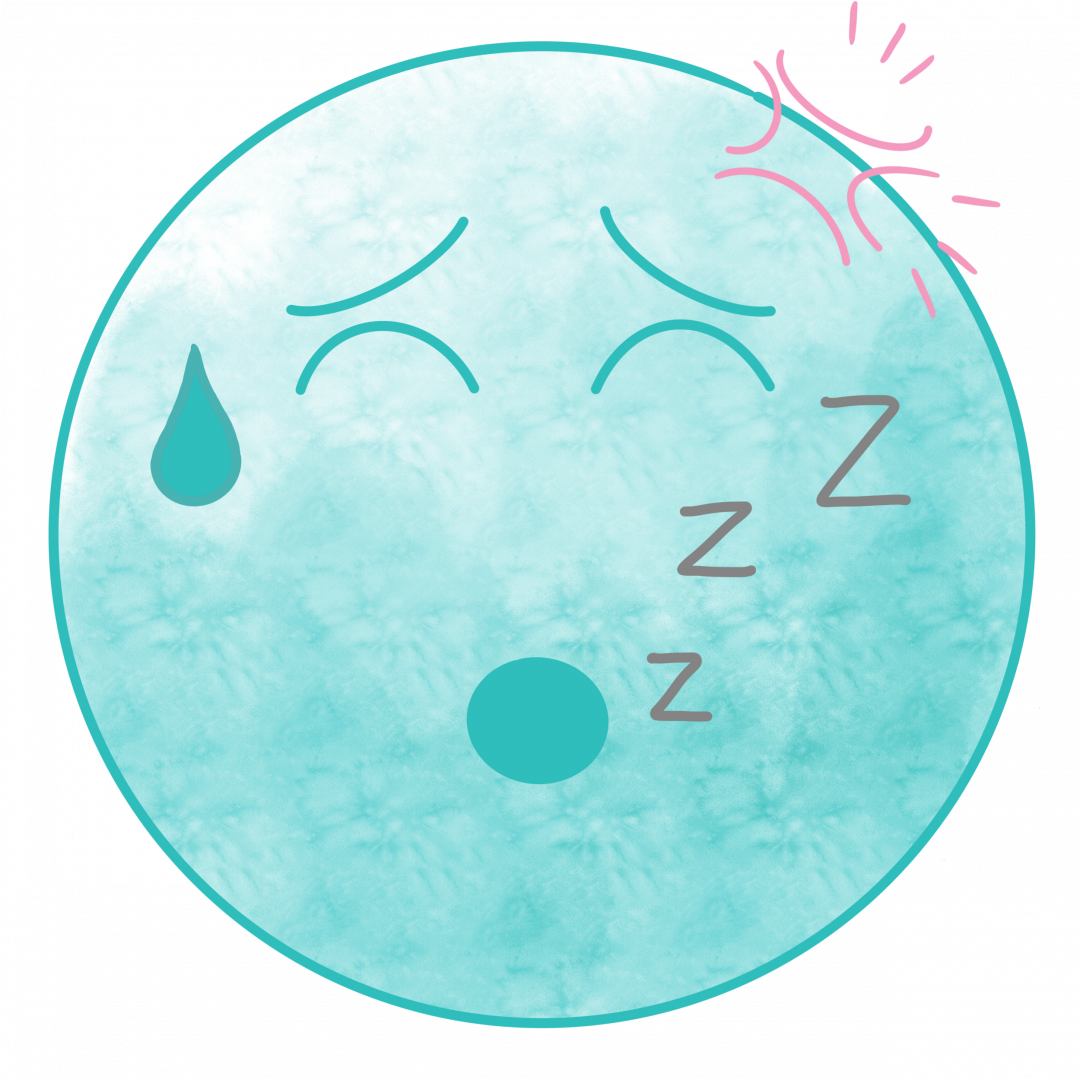
Headache or fatigue
Severe Allergic Reactions to HPV Vaccines
Severe allergic reactions following HPV vaccination are rare, but can be life threatening if they occur. Symptoms of a severe allergic reaction may include hives, swelling of the face and throat, difficulty breathing, a fast heartbeat, dizziness, and weakness. Seek immediate medical attention if such reactions occur.8
How do I know if I am protected against HPV?
Your vaccination records are the best way of knowing if you have been vaccinated. If these records cannot be found, your doctor may perform a blood test. Speak with your doctor if you are unsure about your immunity status.9
The Bottom Line
The best way to avoid genital warts and different types of cancers, including oropharyngeal and cervical, is to get HPV vaccinated. Talk to your primary care physician about getting HPV vaccinated to determine if it is an appropriate measure for you.
This page was made with our partner, CCAP Across The Map. CCAP Across The Map, the acronym standing for cervical cancer awareness and prevention, is a 501(c)(3) nonprofit organization that works to decrease the global rate of cervical cancer through providing cervical health education and increasing access to HPV vaccines and diagnostic screening measures in under-resourced areas around the world. Visit ccapglobal.org for more details.

Sources
-
STD Facts - Human Papillomavirus (HPV). Centers for Disease Control and Prevention. www.cdc.gov/std/hpv/stdfact-hpv.htm. Last reviewed August 20, 2019.
-
Braaten, Kari P, and Marc R Laufer. “Human Papillomavirus (HPV), HPV-Related Disease, and the HPV Vaccine.” Reviews in Obstetrics & Gynecology, MedReviews, LLC, 2008, www.ncbi.nlm.nih.gov/pmc/articles/PMC2492590/.
-
Human papillomavirus (HPV) and cervical cancer. World Health Organization, https://www.who.int/news-room/fact-sheets/detail/human-papillomavirus-(hpv)-and-cervical-cancer. Published January 24, 2019.
-
The HPV Vaccine: Access and Use in the U.S. Kff. https://www.kff.org/womens-health-policy/fact-sheet/the-hpv-vaccine-access-and-use-in-the-u-s/. Published October 9, 2018.
-
HPV Vaccination is Safe and Effective. Centers for Disease Control and Prevention. https://www.cdc.gov/hpv/parents/vaccinesafety.html. Last reviewed April 29, 2019.
-
The Current Landscape of HPV Cancers and HPV Vaccination. President Cancer Panel. https://prescancerpanel.cancer.gov/report/hpvupdate/HPVCancers.html. Published November 2018.
-
HPV Update: Making Sense of the New ACIP Recommendations. Pharmacy Times. https://www.pharmacytimes.com/publications/supplements/2019/November2019/hpv-update-making-sense-of-the-new-acip-recommendations. Published November 15, 2019.
-
Human Papillomavirus (HPV) Vaccine. Centers for Disease Control and Prevention. https://www.cdc.gov/vaccinesafety/vaccines/hpv-vaccine.html. Last reviewed December 3, 2019.
-
Keeping Your Vaccine Records Up to Date. Centers for Disease Control and Prevention. https://www.cdc.gov/vaccines/adults/vaccination-records.html. Last reviewed May 2, 2016.

